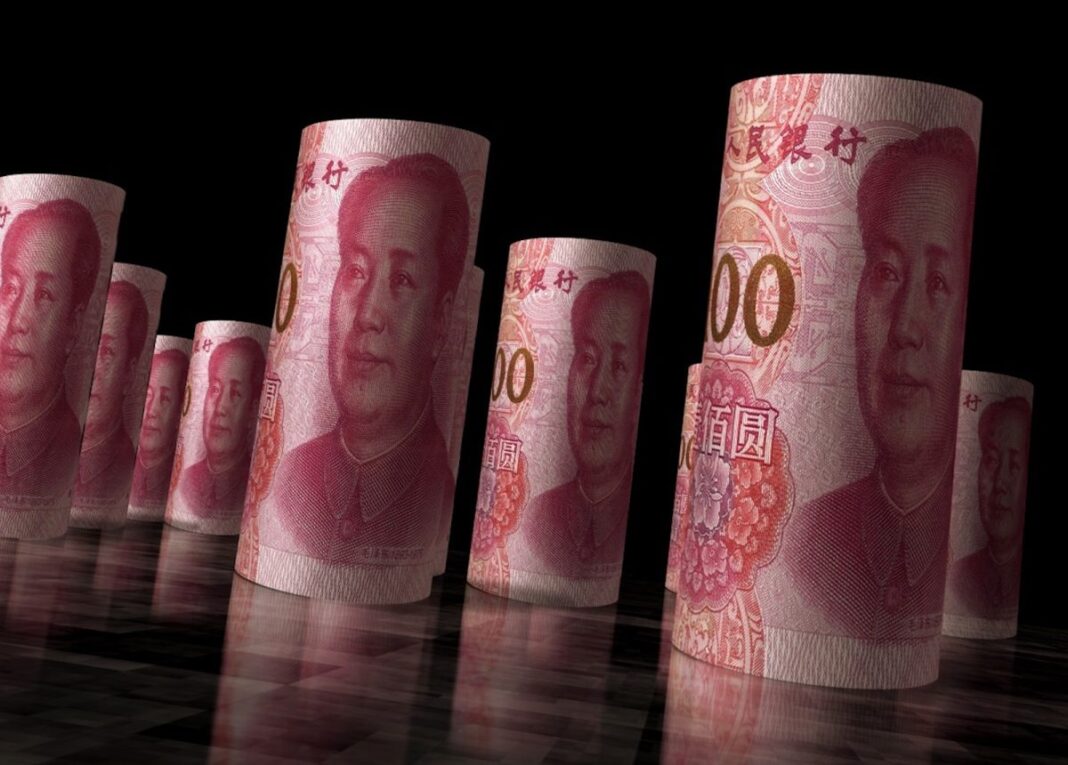In a bid to counteract mounting pressures on its national currency, the People’s Bank of China (PBOC) has reaffirmed its commitment to maintaining the stability of the yuan (RMB).
PBOC will increase treasury bond buying and selling operations, and provide a sound liquidity environment for government bond issuance, CCTV quoted the Bank as saying.
This announcement comes as China navigates economic challenges, including subdued post-pandemic recovery and external monetary tightening, notably by the U.S. Federal Reserve.
Commitment to Stability
The central bank emphasized that it would use a variety of tools to ensure a “reasonable and balanced” exchange rate for the yuan.
While maintaining that the yuan’s value will continue to be determined by market forces, the PBOC pledged to intervene when necessary to prevent disorderly fluctuations.
This includes leveraging foreign exchange reserves and enhancing counter-cyclical measures.
“A stable yuan is essential for supporting economic recovery and maintaining investor confidence,” a spokesperson for the PBOC stated, adding that the central bank would closely monitor global market conditions and speculative behaviors that could exacerbate volatility.
The move comes even as Peter Navarro, President-elect Donald Trump’s senior trade adviser warned China against manipulating its currency.
But China’s embassy in Washington dismissed allegations as baseles. “Navarro’s statements have no factual basis,” the embassy said. “China has reiterated on many occasions that it will not engage in competitive currency depreciation.”
Pressures on the Yuan
The yuan has come under pressure recently due to multiple factors:
- Strengthened U.S. Dollar: The Federal Reserve’s prolonged interest rate hikes have boosted the dollar, placing downward pressure on other currencies, including the yuan.
- Weaker Domestic Demand: China’s economic recovery has been slower than expected, with reduced consumer spending and lower-than-anticipated investment inflows.
- Trade Imbalances: Slowing global demand for Chinese goods has also contributed to depreciation concerns.
In response, the PBOC has stepped up efforts to restore confidence in the currency and mitigate speculative trading that could amplify volatility.
Global Implications
The PBOC’s focus on stabilizing the yuan is not just a domestic concern; it holds significant implications for global markets.
As one of the world’s most traded currencies, the yuan’s performance impacts international trade and investment, particularly for emerging markets with close economic ties to China.
Analysts note that stabilizing the yuan is critical for ensuring global financial stability, especially at a time when divergent monetary policies between major economies have created uncertainty.
“A stable yuan is not only important for China but also for its trading partners and the broader global economy,” said an economist from a leading financial institution.
Outlook
The PBOC’s renewed pledge to stabilize the yuan is expected to bolster confidence among businesses and investors, both domestically and abroad.
However, experts warn that external pressures, such as ongoing geopolitical tensions and sluggish global growth, could pose challenges to these stabilization efforts.
As China continues to implement policies to revitalize its economy, the yuan’s trajectory will remain a focal point for policymakers, investors, and market watchers worldwide.
Also Read
Stanley recalls 2.6 million mugs over safety concerns
Why Astro Bot Won The Game Awards’ Game of the Year for 2024
